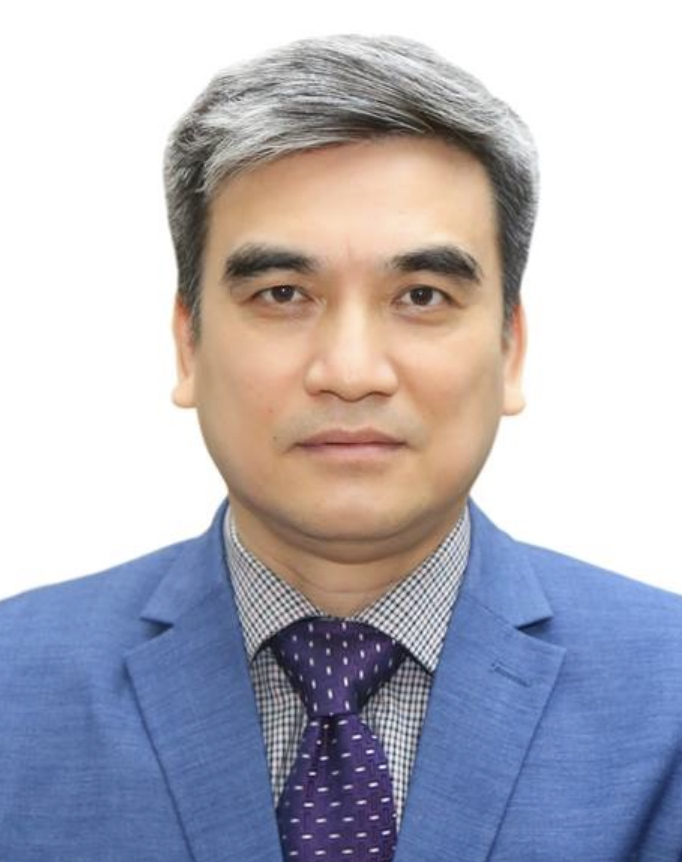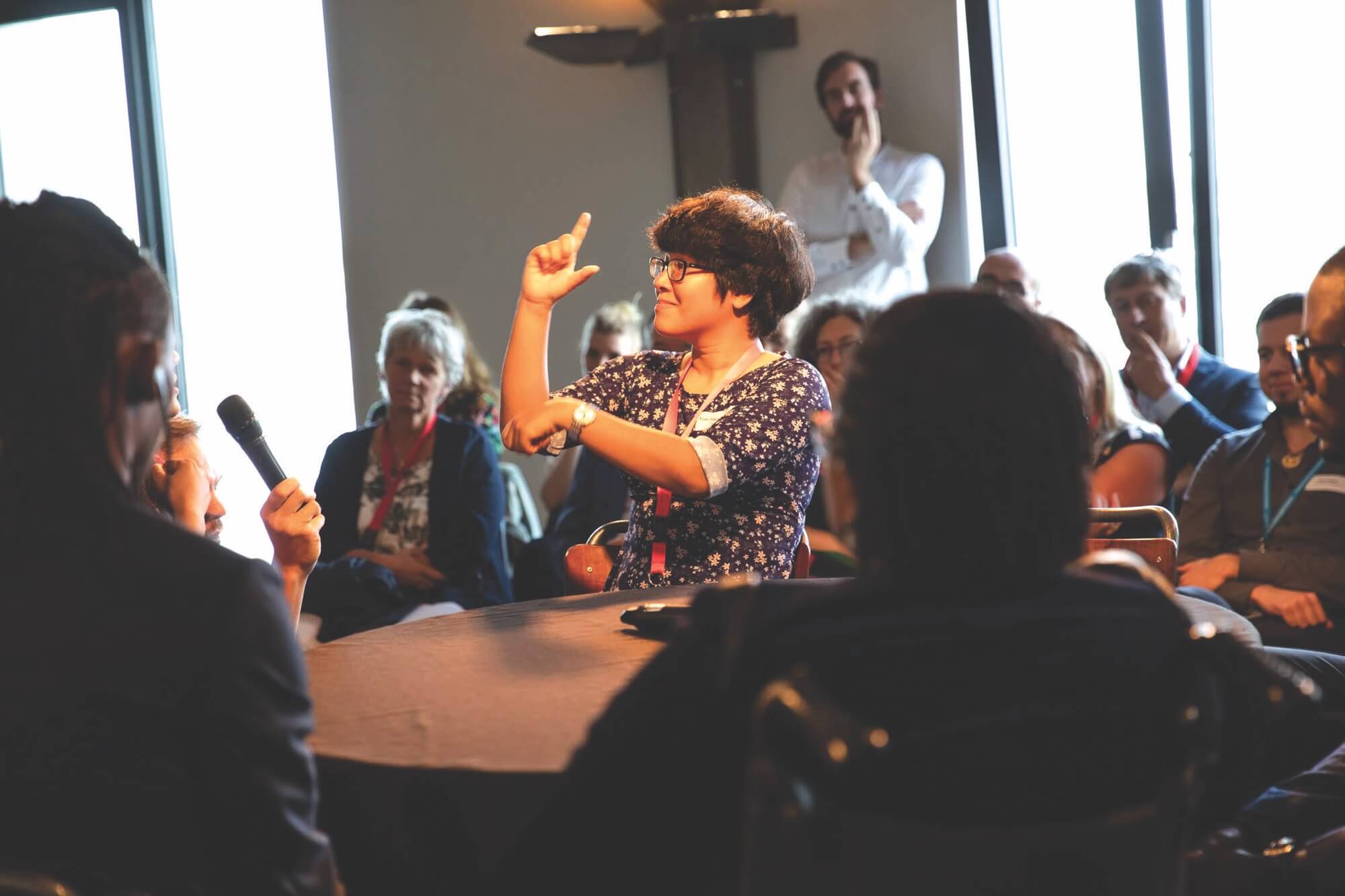



Forty-year-old Nguyễn Trần Thủy Tiên’s lifelong dream was to become a teacher. Shortly after completing her master’s degree in Sign Language Education at Gallaudet University, United States, through the World Deaf Leadership Scholarship in 2016, she landed her dream job. Yet, upon returning to Viet Nam, she was confronted with the persistent barriers facing the Deaf community, leading her to pivot from her original dream.
Some of these barriers include the lack of sign language interpretation in public spaces, high unemployment rates within the Deaf community, and societal biases that contribute to the marginalisation of Deaf individuals.
“Observing these challenges, I decided to temporarily set aside my dream of being a teacher and co-founded the Psycho-Education and Applied Research Centre for the Deaf (PARD) Viet Nam. The vision driving PARD is one of a society where Deaf individuals have complete access to sign language and can actively participate in all aspects of life,” Thủy Tiên shares with The ASEAN.
After two years of navigating bureaucratic complexities and engaging with stakeholders, PARD Viet Nam became the first legalised Deaf-led NGO in the country in 2019. Today, they have worked with at least 1,461 individuals, produced 127 sign language news segments, empowered 30 Deaf clubs nationwide, and reached two million people on their social media. At the heart of this organisation is the motto: “Nothing about the Deaf without the Deaf.” What does it mean?
“Our motto underscores the principle that policies and decisions directly impacting the Deaf community should involve the active participation of Deaf individuals. It emphasises the importance of their voices, experiences, and perspectives in shaping initiatives that aim to enhance their well-being and integration into society,” Thủy Tiên elaborates.
Although Thủy Tiên and PARD aim to promote a more inclusive approach, involving the Deaf community in every decision-making process, they also recognise a significant challenge: the lack of human resources within the Deaf community. Therefore, the network of 30 Deaf clubs across Viet Nam plays a crucial role in driving positive changes. Their weekly gatherings serve as hubs for sharing relevant information, exchanging knowledge and skills, and fostering mutual support.
“It’s been truly heartening to witness the creation of a sense of community among Deaf individuals who may have felt isolated due to geographical constraints. Moreover, the impact on confidence and leadership development has been remarkable. The regular interactions within these clubs have empowered Deaf leaders, giving them the self-assurance to take on influential roles. This not only contributes to their personal growth but also adds to the overall empowerment of the Deaf community,” says Thủy Tiên.
Read more: Margianta Surahman J.D. : Youth activist, Emancipate Indonesia
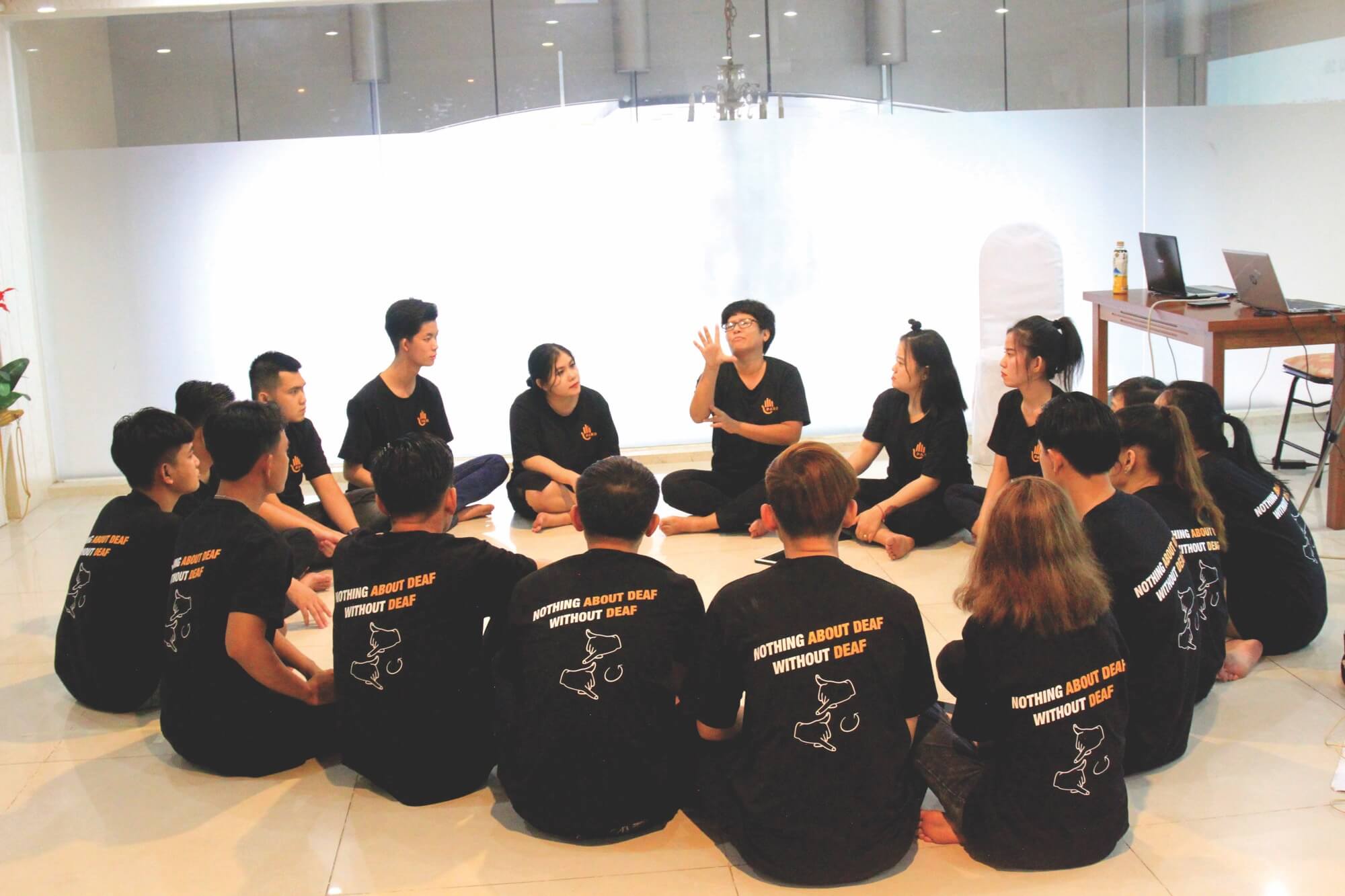
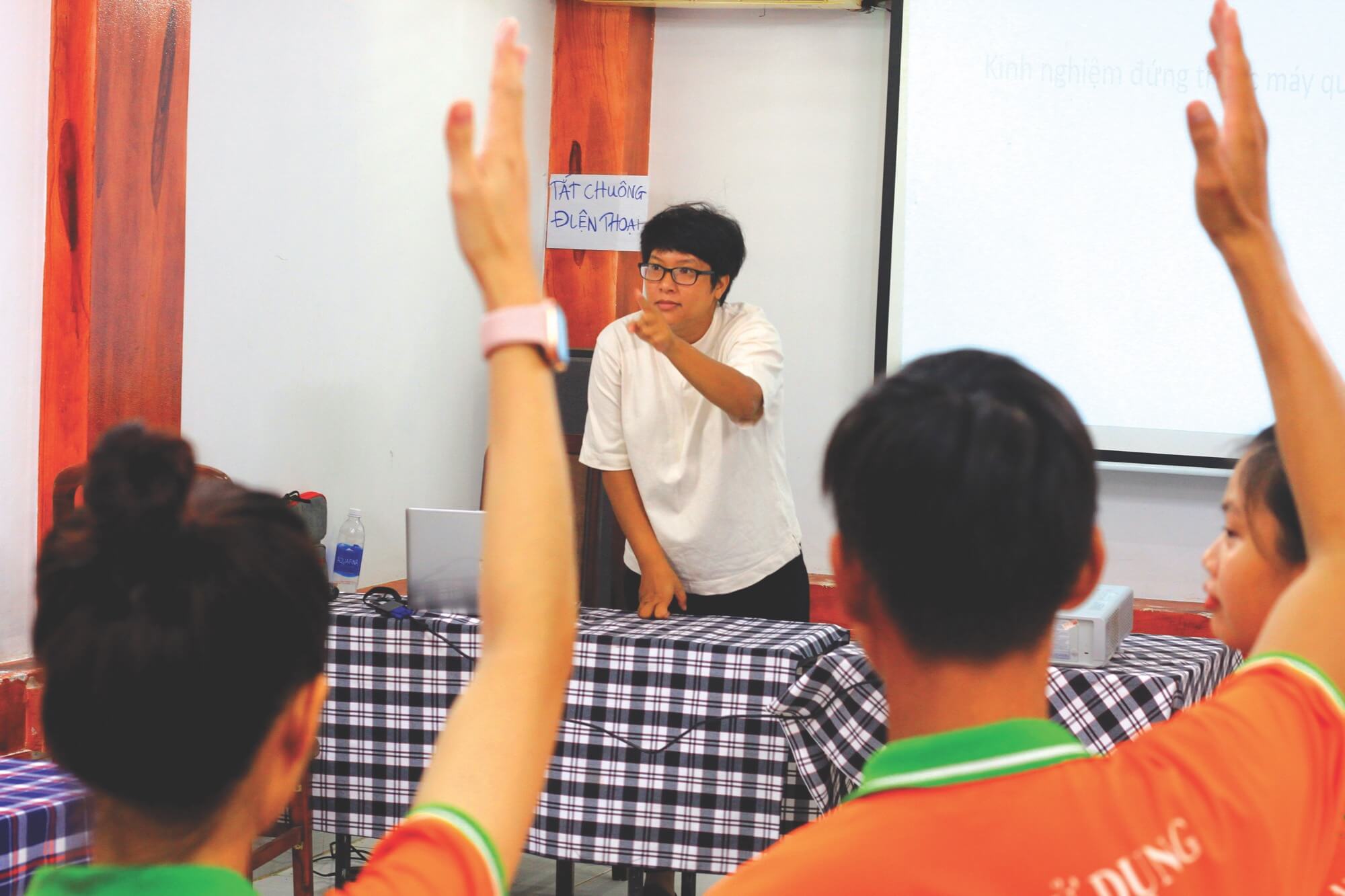
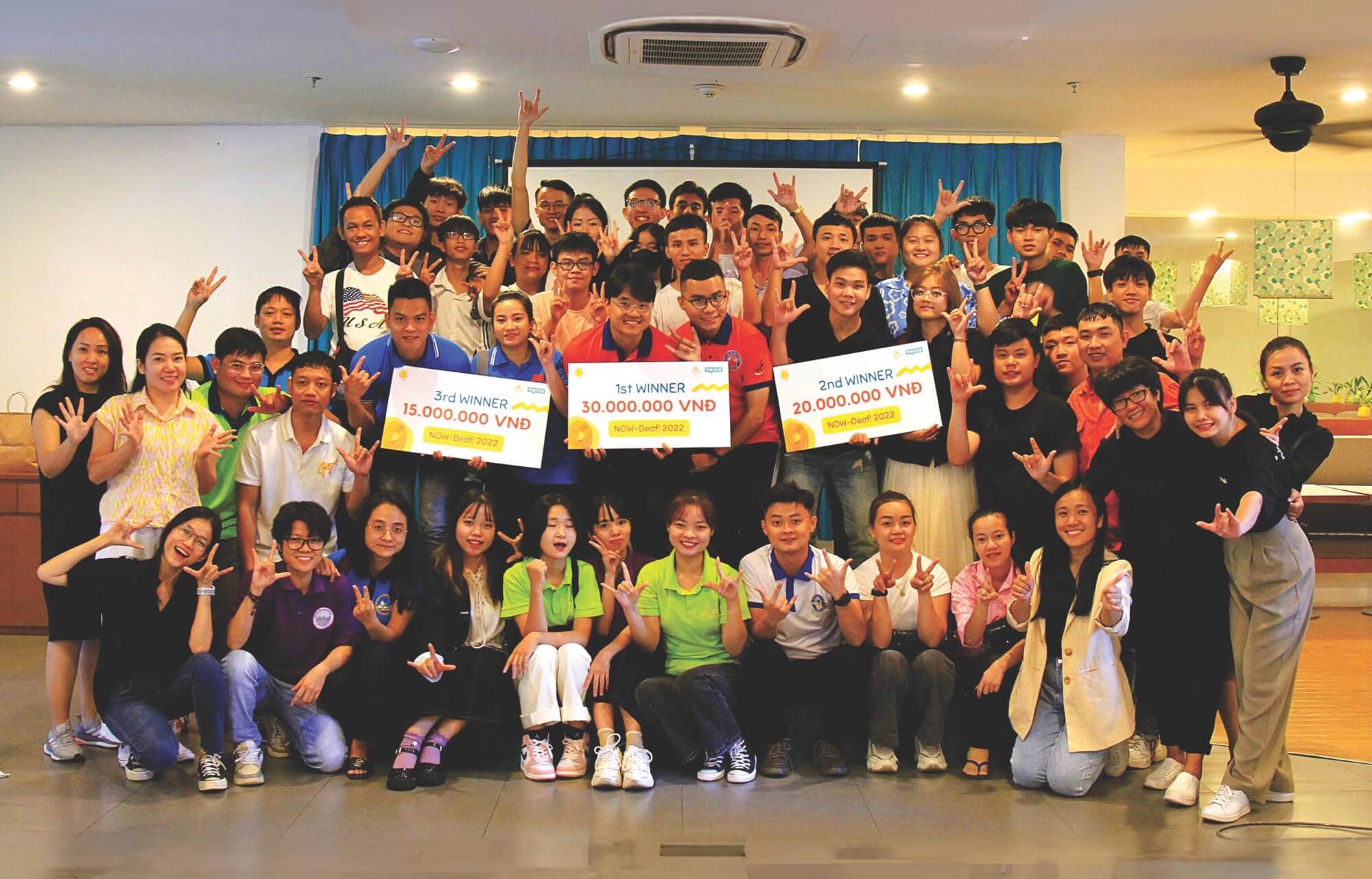
This empowerment has led to increased Deaf representation in policy-making. “Seeing the Deaf community’s needs integrated into decisions at various levels has been gratifying,” she adds.
PARD’s vision is for systemic change, educational empowerment, and a deeper societal understanding of the Deaf community in Viet Nam. For this, Thủy Tiên recommends ASEAN integration, including inclusive legislation, sign language support, employment opportunities, accessible education, community involvement, public awareness, and accessible healthcare.
“By adhering to the principle of ‘Nothing About the Deaf Without the Deaf,’ ASEAN leaders can ensure that policies are not only well-intentioned but also rooted in the genuine needs and aspirations of the Deaf and differently-abled communities they aim to serve.”
Next on the agenda
Currently, PARD Viet Nam is also working on projects with Deaf schools to raise awareness about sexual abuse and violence prevention.
“One exciting upcoming project involves collaborating with Deaf schools to enhance knowledge among teachers and Deaf students on sexual abuse and violence prevention. This initiative also focuses on providing psychological approaches for teachers to support Deaf students in such challenging situations, addressing a critical aspect of the well-being of the community.”
Additionally, PARD also introduced a groundbreaking programme named “Deaf Life.” Launched a few months ago, this documentary series offers an intimate look into the daily lives of Deaf professionals working across various careers.
By showcasing the diverse experiences of Deaf individuals, “Deaf Life” goes beyond stereotypes, fostering a nuanced understanding and appreciation for the multifaceted contributions of the Deaf community,” adds Thủy Tiên.
Closing the interview, Thủy Tiên urges individuals with disabilities in the ASEAN region: “Embrace your uniqueness and abilities, knowing that diversity enriches our societies. Your voice matters, shaping a narrative of strength and resilience. Seize growth opportunities, connect with support networks, and be a force for positive change. Your journey is an inspiration; keep pushing boundaries and embracing the power within you.”
And to the broader community, Thủy Tiên calls for support of sign language and Deaf culture, thus embracing diversity that leads to a more inclusive society.
“To everyone in our society, let’s join the movement supporting sign language. Your efforts to understand and embrace Deaf culture have a profound impact. Let’s unite in solidarity to appreciate and embrace diversity. Learning and respecting each other’s unique languages and perspectives enrich our society with inclusion. Together, we can build a community that values every individual, fostering a culture of acceptance and appreciation.”
Note: Persons who were born Deaf and those who identify as part of a cultural and linguistic community, regardless of the source of their deafness, commonly use the capital “D” in “Deaf.” It expresses their sense of belonging to the Deaf community, which is based on shared experiences, language, and values.






